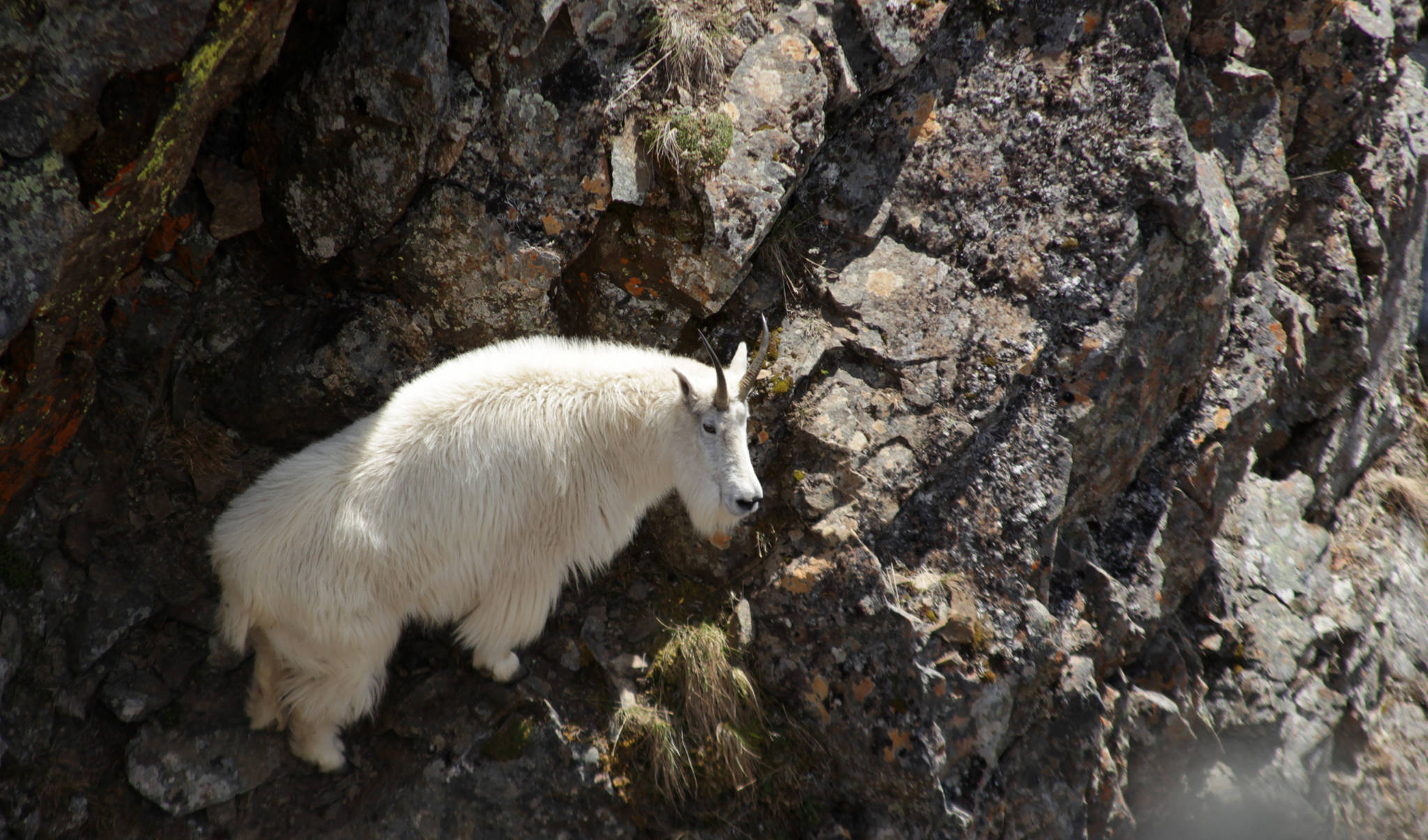The state is asking hunters to bring in the heads of the animals they’ve harvested this season so biologists can test for a dangerous bacteria.
The Alaska Department of Fish and Game plans to expand its monitoring program for Mycoplasma ovipneumoniae, commonly nicknamed Movi, a bacterium that can cause respiratory illness and death in big game animals such as wild Dall sheep and mountain goats. The bacterium was detected for the first time in Alaska’s wild sheep and goats earlier this year and was recently discovered in wild moose and caribou in the state as well.
Movi has been connected with mass die-offs among big game populations in the Lower 48. Though there has not yet been a confirmed death caused by solely by Movi — the bacterium was associated with the death of an emaciated caribou in the Fortymile herd — the state is planning to step up monitoring efforts to better understand which animal populations may have the bacterium. In a press release issued Friday, Fish and Game asked hunters to bring in the heads of any Dall sheep, mountain goat or Delta bison harvested, and the heads of certain moose, caribou and muskoxen populations for sampling.
“Thanks to hunters willing to bring in the head of harvested animals in those wildlife populations we’d like to sample,” said Director of the Division of Wildlife Conservation Bruce Dale in the release. “We know that hunters understand the importance of disease surveillance and we appreciate their assistance with this effort.”
For best success, heads should be fresh and kept cool but not frozen and brought in no later than two weeks after the animal is harvested. Biologists and staff will take nasal swabs from the animal for testing. Fish and Game is requesting the hunters in some areas to bring in the heads with intact nasal mucosa.
In Southcentral Alaska, the department asks that any roadkill moose be brought in with intact nasal mucosa. The request applies to all Dall sheep and mountain goats, both of which live in the mountain areas of the Kenai Peninsula.
The nasal swabs are part of a larger respiratory disease tracking program, in collaboration with other states and the federal government, which includes monitoring specific Dall sheep and mountain goat populations and investigating reports of sick or dead animals. Not all respiratory illnesses are caused by Movi, and Movi doesn’t necessarily always result in respiratory illness.
“The presence of M. ovi in an animal does not necessarily mean it is sick or will become sick,” the press release states. “The ability of M. ovi to cause pneumonia depends not only upon the strain of the bacteria but more importantly is impacted by multiple stressors on the animal including poor nutritional condition and/or environmental factors such as extreme weather. Both domestic and wild sheep and goats can carry the strains of bacteria they are adapted to while showing no signs of illness.”
Reach Elizabeth Earl at eearl@peninsulaclarion.com.

